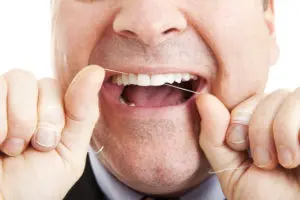Is a Dental Implant Prone to Cavities or Gum Disease?


In order to get the maximum benefits from dental implants, you must maintain them adequately after the oral surgeon places them in your jaw. Your surgeon will give you more complete instructions, but you should plan to continue a sufficient home oral hygiene regimen including twice-daily brushing and daily flossing to minimize the presence of plaque and bacteria in your mouth.
When a patient does develop gum disease or tooth decay after dental implant placement, there’s a risk that the associated inflammation can weaken the bone, which in turn weakens the bond that forms with the dental implant after the oral surgeon inserts it into the jaw. That bone is essential to the stability and structurally complete qualities of the dental implant.
Additionally, patients should not have active tooth decay or gum disease at the time of dental implant placement, as those conditions can affect the bone’s capacity for osseointegration. Your surgeon will examine your jaw to make sure that you are a good candidate for dental implant placement, and that you don’t have any oral diseases that could interfere with osseointegration.
While bacteria cannot destroy dental implants themselves, tooth decay and gum disease still can be problematic for dental implant patients and reduce the stability of the devices. During your treatment planning process, make sure that you understand how to properly care for your dental implants so that they can achieve their expected lifespan. Don’t hesitate to ask us any questions you may have about this aspect of your care.
Contact our caring and professional team today to schedule a consultation with one of our oral surgeons!